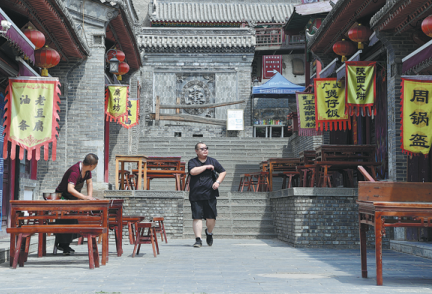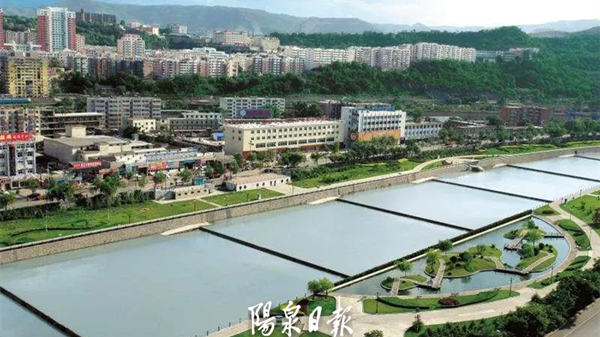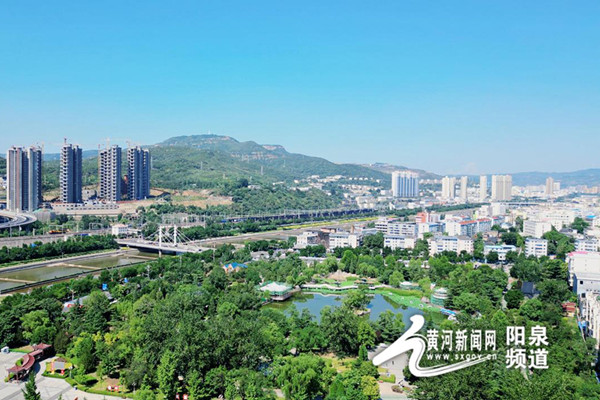Life just peachy for villagers of Taolingou

More than 15,000 people visited Taolingou village during the Children's Day holiday on June 1. [Photo by Wei Xiaohao/China Daily]
A village that was blackened with coal has transformed itself into a green tourism hot spot.
More than 15,000 people visited Taolingou village during the Children's Day holiday on June 1.
A significant number of them came for a new amusement park that was opening its doors for the first time.
"We sold more than 20,000 yuan ($2,825) worth of tickets that day, which was exciting," says Shi Hengyou, a senior official with the village in Yangquan, northern China's Shanxi province.
The amusement park is part of the village's efforts over several years to draw in visitors and seek development through tourism.
The village was full of peach trees in ancient times, but after going into the coal mining business two decades ago it became barren and dusty.
"Locals mostly lived off the land or relied on the several small coal mines for a living in the past," Shi says.
As time went by, the coal mining and transportation was causing air pollution and land to subside.
In 2010, local coal resources were on the verge of running out and China was tightening coal mining rules. So, the village government began to look for a solution.
At first, local authority started paying attention to environmental issues, such as water and soil loss.
"All the coal mines were shut off, and we covered their original sites with yellow soil and applied fertilizers on it, so crops could grow," Shi says.
The land that had collapsed or cracked due to coal mining was also restored.
Then, the local government decided to shift its focus to tourism to support the village's development.
After soil testing and consultation with farming experts in Shanxi, the village authority settled on peach tree plantations to restore the historical appearance of Taolingou.
To date, more than 66 hectares of peach trees have been planted around the village.
Visitor numbers have been on the rise since the village held its first peach blossom festival in 2004.
The annual event, which usually takes place in late April, has helped put Taolingou on the bucket list of travelers. They come to take photographs of the peach blossoms and get back in touch with nature and enjoy the village's rural charm.
"Many residents in the city will come during weekends, turning Taolingou into a backyard of Yangquan," Shi says, adding that the village is only a 10-minute drive from downtown.
Later on, more than 1,000 varieties of trees-including ginkgo, pine and cypress-were planted, contributing to the 85 percent forestation in Taolingou.





